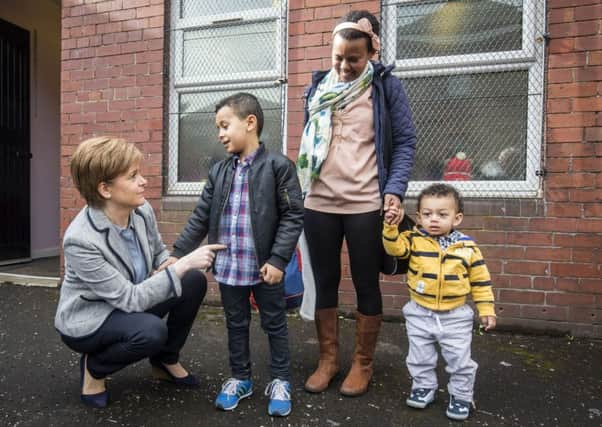Jeane Freeman: Social security with dignity and respect


The return of Parliament will mark the beginning of Stage Two of the legislative process, which will provide the legal framework to deliver the 11 benefits being devolved to Scotland.
In all our preparation to safely and securely transfer the 11 benefits, worth £2.9 billion annually, that affect 1.4 million people, we are listening to the experience of those who know the current UK system well. Of those who have lived with the current benefits system, 2,400 people have volunteered to help shape a service that is best for Scotland. We are benefitting greatly from their help and we will continue working with them, local authorities, health and social care services and the third sector as we build our service.
Advertisement
Hide AdAdvertisement
Hide AdLast year, the First Minister announced that our new social security agency will be headquartered in Dundee, with another major site in Glasgow – creating at least 1,500 jobs. Importantly, we will also have 400 locally based staff across Scotland.
Everyone has told us that the current system is too distant, there is no-one on hand to help and no “human face”. Our local staff will work where people are – in health settings, local authorities, with local organisations and in our rural and island communities – out and about, proactive and supportive.
Staff in the new agency will have the responsibility to encourage people to take up the benefits they’re due, regardless of whether those benefits come from local, Scottish or UK governments. This will add to our benefit take-up campaign work, which we began last year with a £300,000 investment and will continue this year in partnership with local authorities.
Payments will start in the summer with Carer’s Allowance Supplement. Carers give a lot to society and we want to give something back so we will raise their allowance to the same level as Jobseeker’s Allowance, backdated to April.
This will be followed, by summer 2019, by Funeral Expense Assistance and the Best Start Grant.
We want the best start in life for children and families so we have enhanced benefit for low income families, with an increase to a total of £1,100 for the first child and the reintroduction of support for all subsequent children of a total of £800. This investment to support children in their early years stands in stark contrast to the UK government’s cuts to child support.
The largest group of people affected by our new public service will be those receiving disability assistance. We are working in collaboration with our Experience Panels, our Independent Expert Advisory group, chaired by Dr Jim McCormick, and stakeholders to ensure we get every aspect of this assistance right. We will improve decision making, significantly reduce the number of one-to-one health assessments and end the use of private contractors in assessment.
The UK government continues to refuse to listen to the overwhelming evidence that its current roll-out of Universal Credit is causing significant hardship. It refuses to pause the roll-out and fix both the policy and delivery. We only have limited powers over UC and cannot fix all of it. However, with the limited powers we do have, we are providing Universal Credit Choices – allowing people to choose if they want to be paid twice monthly and to have their housing costs paid directly to landlords. In October, we rolled this out to new claimants, and later this month this will be extended to everyone already on UC in full service areas.
Advertisement
Hide AdAdvertisement
Hide AdAnd we will continue to spend at least £100 million each year to mitigate the worst effects of the UK government welfare cuts – money we should be able to invest elsewhere to help pull people out of poverty but we will use to protect the poorest and most vulnerable in our country.
As we leave 2017, we do so with firm foundations laid. Foundations built on genuine involvement and collaboration.
The next 12 months will see the new social security service for Scotland begin to appear on the ground. A new public service that Scotland can be truly proud of.
• Jeane Freeman is Minister for Social Security